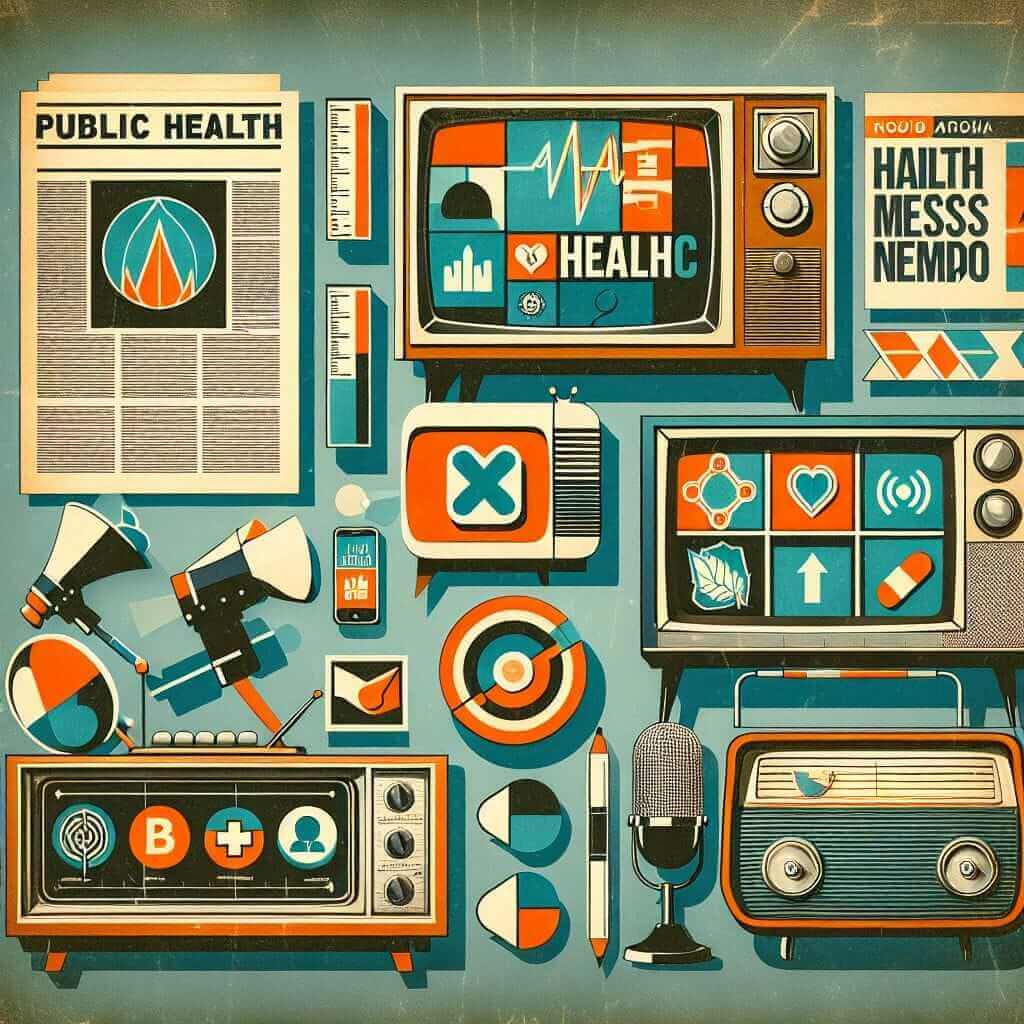Mass media has long played a crucial role in shaping public perceptions and behaviors, especially when it comes to public health. Understanding the ways mass media influences public health awareness is essential for anyone preparing for the IELTS Writing Task 2. This topic is recurrent in IELTS writing prompts and is central to social discourse. In this article, we’ll delve into a comprehensive analysis and provide a well-crafted sample essay.
Table Of Contents
Common IELTS Writing Task 2 Prompts on Mass Media and Public Health Awareness
Based on the historical data from various IELTS exams, the following prompts (or similar ones) have appeared frequently:
- “Mass media plays a vital role in educating the public on health issues. To what extent do you agree or disagree with this statement?”
- “Discuss the advantages and disadvantages of using mass media to raise public health awareness.”
- “How effective is mass media in changing health behaviors? Provide relevant examples and reasons to support your opinion.”
For this article, we will select one of the most common prompts to create a detailed sample essay and analysis.
Prompt:
“Mass media plays a vital role in educating the public on health issues. To what extent do you agree or disagree with this statement?”
Analyzing the Prompt
This prompt asks for your opinion on the role of mass media in public health education. You need to discuss the extent to which you agree or disagree with the statement. This means you should provide both supportive points and potential counterpoints, adhering to a balanced argument.
Sample Essay
Mass media, encompassing television, radio, newspapers, and the Internet, undeniably plays a pivotal role in educating the public on health issues. I strongly agree with this statement for several reasons: accessibility, credibility, and the ability to reach a wide audience quickly.
First and foremost, mass media is highly accessible to most people. With the advent of the Internet and smartphones, information is just a click away. Health campaigns, such as those against smoking or promoting vaccination, can be disseminated rapidly and efficiently. For instance, during the COVID-19 pandemic, mass media was instrumental in broadcasting updates on safety measures and vaccination drives, ensuring that the public remained informed and safe.

Furthermore, mass media often leverages credible sources. Journalists and media outlets typically consult experts and health authorities, such as the World Health Organization (WHO), to provide accurate and reliable information. This credibility fosters trust among the public, which is crucial for the adoption of health recommendations and behaviors.
However, it is not without its drawbacks. The spread of misinformation is a significant concern. Misleading health news can lead to public panic or harmful behaviors. For instance, false information about vaccine side effects disseminated through mass media has led to vaccine hesitancy in some communities. However, these instances highlight the importance of media literacy and critical thinking among the public.
In conclusion, although there are challenges associated with the use of mass media in public health education, its benefits far outweigh the drawbacks. Mass media’s reach and credibility make it an indispensable tool in promoting public health. Therefore, I fully support the role of mass media in health education, provided that it is used responsibly.
Word count: 271 words
Key Points to Note When Writing on This Topic
- Balanced Argument: Always provide a balanced view by discussing both sides when the prompt asks for the extent of agreement or disagreement.
- Credible Examples: Use real-world examples to support your arguments. This adds validity to your points.
- Structure: Maintain a clear structure with an introduction, body paragraphs, and a conclusion.
- Vocabulary and Grammar: Use a range of vocabulary and complex grammatical structures accurately. For instance, using words like “indispensable” and phrases like “fosters trust” demonstrates advanced vocabulary usage.
Challenging Vocabulary
Here are some challenging words from the sample essay:
- Pivotal (adj.) /ˈpɪvətl/: Crucial or of central importance.
- Disseminated (v.) /dɪˈsɛmɪneɪtɪd/: Spread or disperse widely.
- Credibility (n.) /ˌkrɛdəˈbɪləti/: The quality of being trusted and believed in.
- Instrumental (adj.) /ˌɪnstrəˈmɛntl/: Serving as a means of pursuing an aim or policy.
- Misleading (adj.) /ˌmɪsˈliːdɪŋ/: Giving the wrong idea or impression.
- Misinformation (n.) /ˌmɪsɪnfərˈmeɪʃən/: False or inaccurate information.
- Indispensable (adj.) /ɪndɪˈspɛnsəbl/: Absolutely necessary.
- Media Literacy (n.) /ˈmiːdɪə ˈlɪtərəsi/: The ability to access, analyze, evaluate, and create media.
Conclusion
Mass media undeniably plays a significant role in public health awareness. In preparing for the IELTS Writing Task 2, understanding and being able to articulate arguments on this topic is crucial. Practice by writing essays using the prompts given and ensure you use a range of vocabulary and complex sentence structures.
Other potential prompts to practice with include:
- “What are the potential risks and benefits of mass media in public health campaigns?”
- “Compare the effectiveness of social media and traditional media in promoting public health initiatives.”
By mastering these, you’ll be well-prepared for the IELTS Writing Task 2.